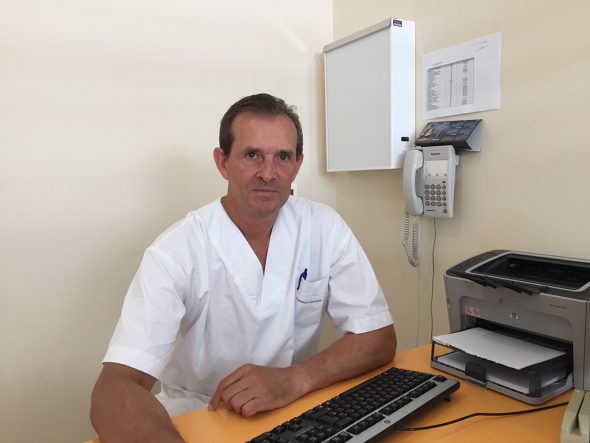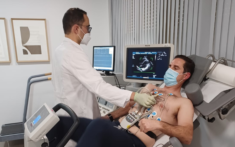Obesity is considered the epidemic of the XXI century. No wonder the World Health Organization (WHO) has warned against a crisis of obesity in the coming years, placing Spain in a worrying situation. In the 2030 70 estimated% of adults are overweight and obese are 30%.
To define overweight and obesity is commonly used BMI or body mass index. It is calculated by dividing weight in kilograms by height in meters squared. It is said that someone is overweight when their BMI is between 25 and 30. We talk about obesity with a BMI greater than 30. BMI greater than 40 involves having morbid obesity.
It is also important to note that waist circumference and BMI and qualifies alert on excess intra-abdominal fat which is associated with increased cardiovascular risk. A waist circumference over 102 cm in men and 88 cm in women indicates increased risk.
Obesity is a risk factor in itself and causes problems of self-esteem, mobility, social and labor relations and sexual disorders. The 80% of obese have some type of pathology associated the most frequent type II diabetes, dyslipidemia, hypertension, ischemic heart disease, sleep apnea and joint disorders among others. It may also have a role in breast cancer, endometrial, prostate, colon and rectum. Life expectancy is shortened by 5-7 years 30 and 40 BMI between 10 years and with BMI greater than 40.
In these cases it has been shown that conservative methods (diet, exercise, medical treatment) are not enough being bariatric surgery or surgery of effective obesity for weight loss and weight control as well as partial or total remission of associated diseases. Today surgery is indicated in BMI greater than 40 (morbid obesity) or in BMI greater than 35 associated with disease. The case of type II diabetes deserves special mention as it has been seen that surgery does improve or cure diabetes in up to 80% of cases so increasingly being made more interventions to control diabetes in patients with BMI under 35.

As for surgical techniques today, two are mostly used. The gastric by-pass that has been until recently the "gold standard" or the reference technique with which to compare all the others and the vertical gastrectomy or "gastric sleeve" (sleeve gastrectomy) which consists in removing the 80% of the stomach approximately. The latter has more and more followers since it is faster, does not need splices, has fewer complications and seems equally effective. Both are done by laparoscopy or minimally invasive surgery drastically reducing discomfort and hospital stay.
At the clinic San Carlos Office we are able to offer this surgery, with the multidisciplinary team needed.
The medical aspect is directed by Dr. Maria Carmen Mafé, a specialist in Internal Medicine with special dedication to endocrinology and nutrition. The surgical aspect is directed by Dr. Alberto Bordallo, a specialist in General and Digestive Surgery with more than 20 years of experience in advanced laparoscopic surgery and with the special collaboration of Dr. Raul Cánovas, an expert in laparoscopic obesity surgery. Both are members of the Seco (Spanish Society of Surgery of Obesity).
Dr. Alberto Bordallo, a specialist in General Surgery at Policlinico San Carlos.






